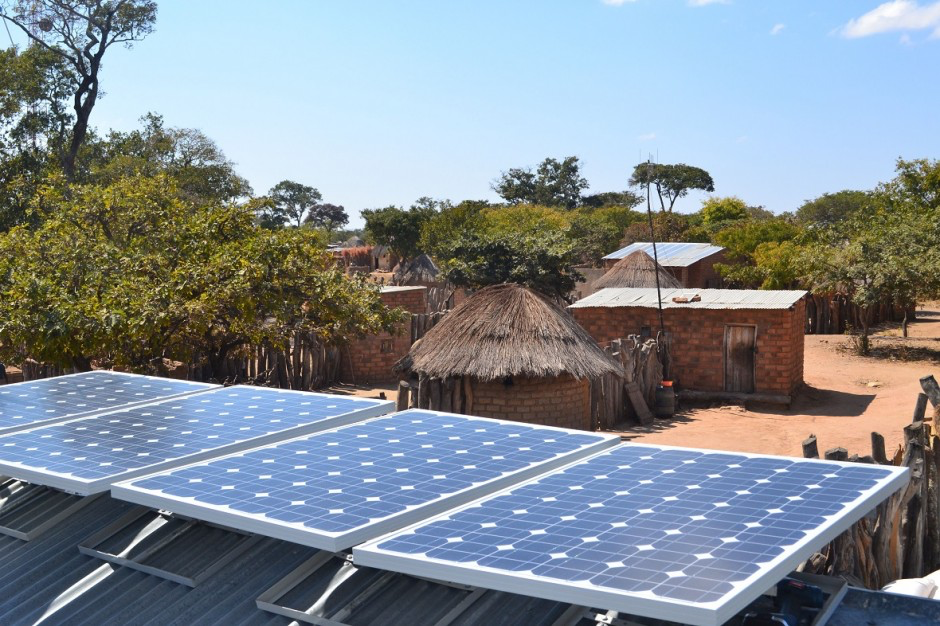The deployment of electric vehicles (EVs) in Nigeria’s rural areas can provide significant benefits for both customers and solar mini-grid developers. Vehicle electrification offers a solution to challenges like rural mobility, rising fuel prices, and vehicle decarbonization.
This insight comes from a report titled “Integrating E-Mobility with Mini Grids in Rural Nigeria,” compiled by the Rural Electrification Agency of Nigeria and the Columbia School of International and Public Affairs. The report highlights the potential of integrating EVs with existing mini-grids, which already supply reliable electricity and have spare generation capacity.
The study focuses on developing e-mobility infrastructure within rural and peri-urban settings in Nigeria. Data from the Nigeria Electrification Project (NEP) implementation was used to assess technical, economic, policy, and regulatory aspects of e-mobility integration at two mini-grid sites: Toto in Nasarawa state (a hybrid system) and Petti in the Federal Capital Territory (FCT), which is fully solar.
The project primarily examined two-wheeler (2W) Battery Electric Vehicles (BEVs), as these are the main mode of transportation in rural communities and represent the greatest opportunity for impact. Nigeria has the second-largest vehicle stock in sub-Saharan Africa, projected to grow from 14 million to 37 million by 2040. The e-mobility market is expected to reach a value of $5.07 billion by 2027.
The Nigerian government is working on promoting local assembly capacity for EVs. In July 2023, the National Automotive Design and Development Council (NADDC) announced that its Electric Vehicle Development Plan was in the final stages of implementation. The plan aims to produce electric public transport, paratransit vehicles, two-wheelers, and tricycles in Nigeria with support from agreements with Japan and Israel.
Despite promising opportunities, there are several challenges to EV development, such as high upfront costs, lack of charging infrastructure, high customs duties, poor road infrastructure, and slow maintenance services. The report recommends a lease-to-own model combined with battery swapping to address these issues. This model reduces or eliminates the high upfront cost of electric vehicle purchases and mitigates charging time barriers.
International examples of EV integration show varied approaches with both successes and challenges. Developed countries, like the US and Norway, have used substantial government support, such as favorable tax policies and subsidies, to boost EV markets. In Africa, Kenya leads in EV investments and focuses on integrating EVs with existing energy systems. Successful EV markets in Africa are generally supported by government policies that provide financial incentives.
Nigeria faces several barriers to EV adoption, including high upfront costs, limited charging infrastructure, and a lack of consumer awareness. Additionally, grid instability and high import tariffs pose significant challenges. Developing favorable policies and incentives, similar to those in Rwanda and Kenya, could catalyze the EV market in Nigeria. This includes reducing import duties on EVs and offering subsidies for local assembly and purchase.
The report’s recommendations include:
- Focusing on two-wheeler electric vehicles with a lease-to-own model to minimize initial costs and simplify charging logistics through battery swapping stations.
- The REA should facilitate and prioritize subsidies for EV adoption, aligning them with broader national goals for renewable energy and transportation.
- Collaboration between the REA, local and international partners, and multilateral institutions for funding will be key for the successful implementation of the recommended strategies.
By integrating EVs with mini-grids, Nigeria can address rural mobility issues, reduce fuel costs, and support vehicle decarbonization, ultimately transforming its rural economy.
Source: ESI Africa



